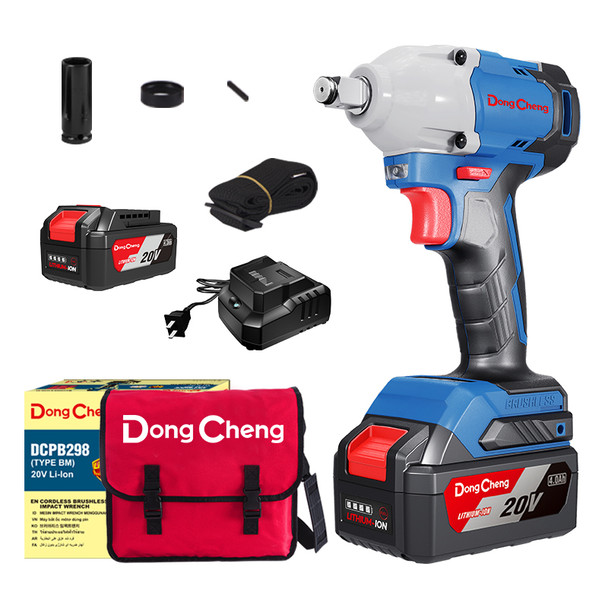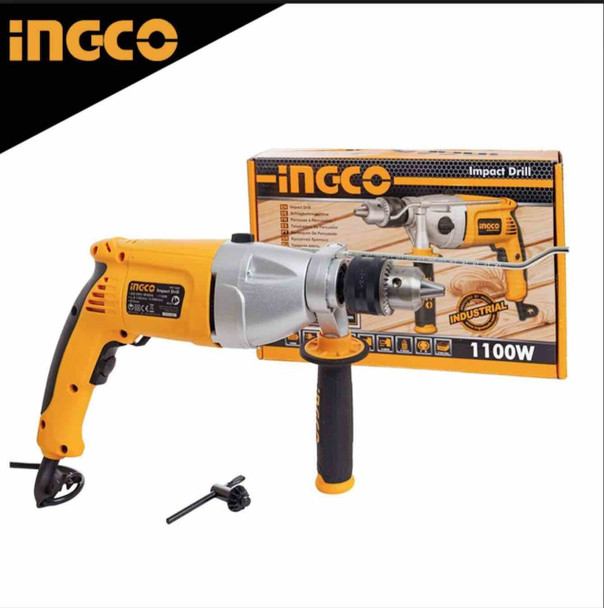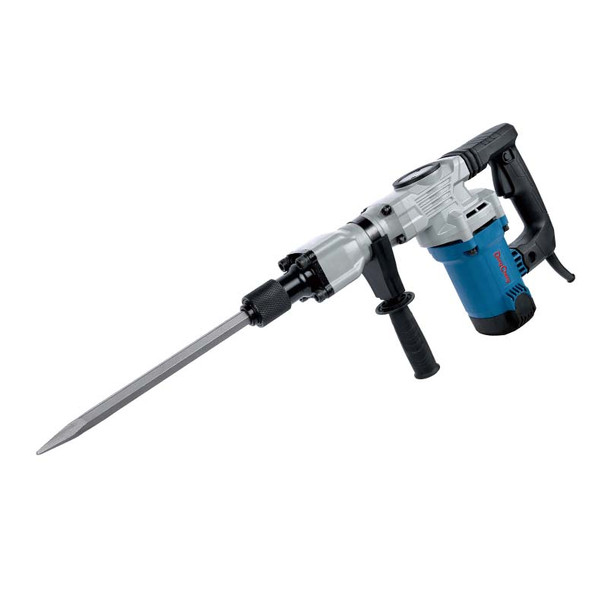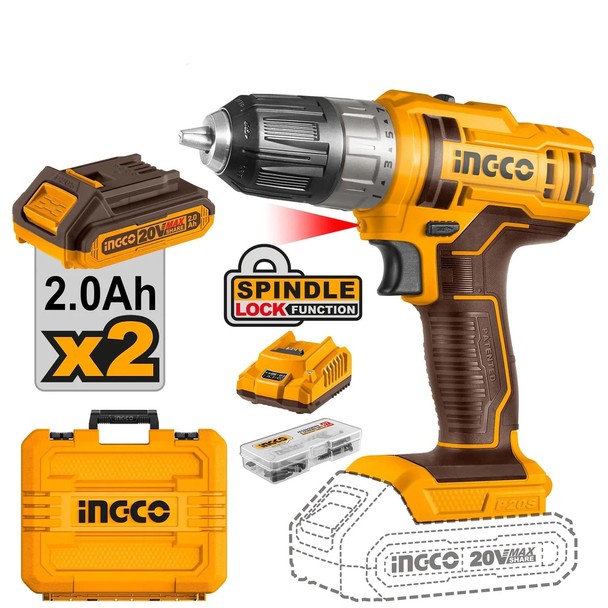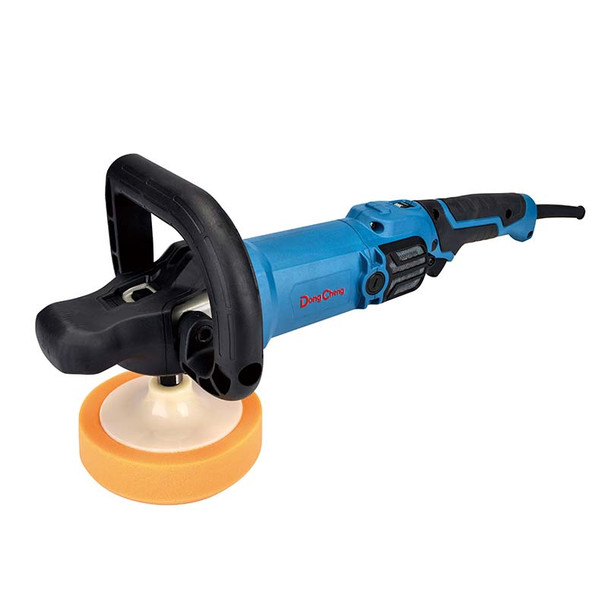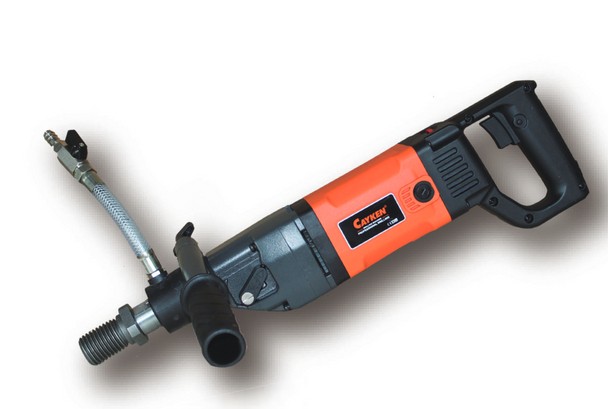Corded vs. Cordless Power Tools: Which is Best for Your Project?
Key takeaway
Choosing between corded and cordless power tools depends on factors such as the project's nature, workspace constraints, power requirements, duration of use, and budget considerations. Corded tools offer consistent power for heavy-duty tasks, while cordless tools provide portability and flexibility in remote or confined spaces. In this guide we will provided a step by step guide to selecting the right power tool for your project and by accessing these factors, you can make an informed decision to optimize efficiency and performance in your projects.
Buy Now... DongCheng Cordless Brushless Impact Wrench 16 mm 20V 4A DCPB298BM
Introduction
When it comes to power tools, like driver drills, impact wrench, and cordless reciprocating saw, some of these are designed with a cord plugged into an outlet to work (corded), while others run on batteries (cordless). Each type offers its own set of advantages and considerations, leaving many wondering which is best suited for their projects. Whether you're tackling professional-grade tasks or weekend home improvement projects, the choice between corded and cordless power tools can significantly impact the outcome of your endeavors.
In this exploration, we delve into both options, helping you navigate the decision-making process to determine which type best aligns with the demands of your projects and preferences. Figuring out which one is better for your projects can be tricky. Whether you're fixing stuff around the house or doing bigger jobs, choosing between corded and cordless tools is important.
Learn more: The Best Cordless Power Tools with Long Lasting Battery Life
Understanding Corded Power Tools
Corded power tools are electric tools that require a connection to the electrical grid to operate. They convert electrical energy into mechanical action, providing consistent power for a variety of tasks. These tools are designed to be plugged into a standard wall outlet using a cord, which transmits electricity to the motor within the tool, enabling it to perform functions such as drilling, cutting, sanding, or grinding.
Advantages
- Constant Power Supply: Corded power tools offer an uninterrupted power supply, ensuring that they can operate at full capacity for the duration of their use. This is particularly beneficial for tasks that require sustained power over a long period. Whether you're working on a small project or a large-scale task, corded tools provide reliable power throughout.
- No Battery Life Limitations: Unlike cordless counterparts, corded power tools do not rely on batteries, eliminating the need to pause work to recharge or replace batteries as well as concerns about battery life and performance degradation over time. Users can work for extended periods without interruptions, making them particularly suitable for prolonged projects or professional use.
- Ideal for Heavy-Duty and Continuous Use: The consistent power output of corded tools makes them ideal for heavy-duty applications. With a consistent power supply, they can tackle demanding tasks without overheating or losing performance. This makes them indispensable in construction sites, workshops, and other industrial settings where robustness and reliability are paramount.
Limitations
- Dependency on Power Outlets: The primary limitation of corded power tools is their reliance on being near a power outlet. This can limit mobility and flexibility, especially when working in larger areas or outdoor settings where access to power sources is limited.
- Cord Length Restrictions: The length of the cord can restrict the range of movement and can require the use of extension cords, which can be cumbersome as users may need to constantly adjust their position or utilize extension cords to reach distant areas, which can be cumbersome and increase the risk of tripping hazards.
- Potential Safety Hazards: The presence of cords introduces potential safety hazards, including the risk of tripping, entanglement, or accidental cutting. Users must exercise caution to prevent injuries and ensure proper cord management to minimize these risks. Additionally, working near water or wet conditions requires extra vigilance to avoid electrical shocks.
Buy Now... Impact drill 16mm ID211002 INGCO
Exploring Cordless Power Tools
Cordless power tools are portable tools that operate on rechargeable batteries, allowing users to work without the need for a direct connection to an electrical outlet as well as with greater flexibility and mobility compared to corded counterparts. They convert stored electrical energy from the battery into mechanical action, facilitating a range of tasks such as drilling, sawing, and fastening. The key component of cordless tools is the battery pack, which can be swapped and recharged as needed.
Advantages
- Portability and Maneuverability: The absence of a power cord significantly enhances the portability of these tools, allowing users to easily carry them to different locations and maneuver them in tight spaces. This enhanced maneuverability improves productivity and allows for more efficient completion of tasks.
- Flexibility in Various Work Environments: Cordless tools are particularly well-suited for outdoor or remote work environments where access to power outlets may be limited or impractical. Whether working on a construction site, performing renovations, or tackling DIY projects outdoors, cordless tools offer the flexibility to work anywhere without being tethered to a power source.
- Reduced Tripping Hazards: Without cords to manage, cordless tools offer a safer work environment by reducing the risk of tripping over wires, which is especially beneficial in busy or confined spaces. Users can focus on the task at hand without the distraction or risk posed by trailing cords.
Limitations
- Limited Battery Life The operational time of cordless tools is limited by battery life. Once the battery is depleted, work must be paused for recharging, which can interrupt the workflow. This limitation can be particularly challenging for extended projects or continuous usage.
- Additional Cost for Batteries and Chargers: Investing in spare batteries and fast chargers may be necessary to maintain uninterrupted workflow, adding to the overall expense of using cordless tools compared to their corded counterparts.
- Less Power Compared to Corded Counterparts Generally, cordless tools have less power output compared to corded tools, which can affect their performance. While advancements in battery technology have significantly improved the performance of cordless tools, they may still lag behind corded tools in terms of raw power, making them less suitable for heavy-duty or continuous use in certain applications.
Buy Now... DongCheng Demolition Hammer DZG06-6S
Factors to Consider When Choosing Between Corded and Cordless Tools
When deciding between corded and cordless power tools for a project, several factors come into play that can influence your decision. Understanding these factors will help ensure that you select the most appropriate tools for your needs.
1. Nature of the Project
The type of project you’re undertaking is a critical factor. For tasks that require continuous power or involve heavy-duty applications, such as drilling through thick materials or cutting dense wood, corded tools are often preferred. On the other hand, for projects that demand mobility and flexibility, such as installations in remote locations or outdoor renovations, cordless tools may be more practical.
2. Power Requirements
Consider the power demands of your project. Corded tools typically provide consistent and reliable power, making them suitable for demanding applications that require high torque or sustained operation. Conversely, cordless tools may be sufficient for lighter tasks or intermittent use but may struggle with prolonged or high-intensity applications due to battery limitations.
3. Duration and Frequency of Use
For long-duration tasks or frequent use, corded tools eliminate the need for battery changes and recharging, providing continuous operation. If the task is short or infrequent, the ease of grabbing a cordless tool and getting straight to work can be a significant advantage.
4. Workspace Constraints
The layout and accessibility of your workspace can also dictate your choice. In a confined space or at a considerable height, a cordless tool’s lack of tethering is a clear benefit. However, in a stable workshop setting, corded tools can be used without much concern for mobility.
5. Budget Considerations
Finally, consider your budget. Cordless tools can be more expensive initially due to the cost of batteries and chargers. Over time, replacing batteries can add to the expense. Corded tools, while potentially less costly upfront, may require extension cords or other accessories depending on the workspace.
Buy Now... INGCO cordless drill 20v CDL1200528
Case Studies and Practical Applications
Examples of Projects Suited for Corded Tools
- Heavy Construction and Demolition: Projects involving heavy construction and demolition, such as drilling through concrete, cutting steel beams, or breaking up masonry, often require the continuous power and high torque provided by corded tools. Contractors and construction professionals rely on corded drills, saws, and jackhammers for their robust performance and reliability in challenging environments.
- Woodworking and Carpentry: Woodworking and carpentry projects that involve precision cutting, shaping, and joinery benefit from the consistent power output of corded tools. Whether it's ripping through hardwoods with a table saw, smoothing surfaces with a belt sander, or routing intricate designs, corded tools offer the stability and power necessary for achieving professional-quality results.
Examples of Projects Suited for Cordless Tools
- Home Renovations and Remodeling: Cordless tools are ideal for home renovations and remodeling projects where mobility and convenience are paramount. Tasks such as installing fixtures, assembling furniture, or hanging shelves often require moving between different rooms or areas, making cordless drills, drivers, and multi-tools invaluable for their portability and versatility.
- Outdoor Landscaping and Maintenance: Landscaping and outdoor maintenance projects, such as trimming hedges, pruning trees, or installing fences, frequently occur in locations without easy access to power outlets. Cordless tools like hedge trimmers, chainsaws, and grass trimmers offer the freedom to work anywhere in the yard without being tethered to cords, enhancing efficiency and maneuverability.
Buy Now... DongCheng Sander Polisher DSP05-180
Tips for Maximizing Efficiency and Safety
Proper Maintenance and Care for Both Types of Tools
Maintaining your power tools is essential for their longevity and safety.
- Regular Cleaning and Inspection: Regardless of the type of tool, regular cleaning and inspection are essential for maintaining performance and longevity. Remove dust, debris, and buildup from corded and cordless tools to prevent malfunctions and ensure smooth operation. Inspect cords, plugs, and batteries for signs of wear or damage and replace any worn-out components promptly.
- Lubrication and Blade Sharpening: Keep moving parts well-lubricated to reduce friction and wear. For corded tools with blades or cutting surfaces, such as saws or drills, regularly sharpen blades or replace dull ones to maintain cutting efficiency and safety. Similarly, ensure drill bits and other accessories are sharp and in good condition for optimal performance.
Asides regular cleaning and lubrication of your tools to prevent the build-up of dust and debris, make sure you also Inspect cords for damage and batteries for any signs of wear. And ensure you store tools in a dry, secure place to avoid environmental damage and unauthorized use.
Safety Precautions Unique to Corded and Cordless Tools
- Corded Tools: When using corded tools, be mindful of cord management to prevent tripping hazards and entanglement. Use cord holders or cable organizers to keep cords neatly arranged and out of the way. Avoid running cords across walkways or placing them in areas prone to damage or exposure to moisture.
- Cordless Tools: For cordless tools, prioritize battery safety by using only manufacturer-recommended batteries and chargers. Avoid overcharging batteries, as this can lead to overheating and reduced battery life. Store batteries in a cool, dry place away from direct sunlight and extreme temperatures to prolong their lifespan. Always use the correct battery and charger specified by the manufacturer, and never use a damaged battery.
Choosing the Right Accessories and Attachments
Selecting the appropriate accessories and attachments for your power tools can greatly enhance their capabilities and safety.
- Compatibility: When selecting accessories and attachments for your tools, ensure compatibility with the specific make and model of your tool. Using improper or ill-fitting accessories can compromise performance and safety. Refer to the tool's user manual or consult with knowledgeable staff or professionals to find the right accessories for your needs.
- Quality and Durability: Invest in high-quality accessories and attachments that are durable and built to withstand the rigors of your projects. Cheaper alternatives may wear out quickly or pose safety risks due to inferior materials or construction. Quality accessories not only ensure better results but also contribute to overall safety and efficiency.
In addition to that, make sure you use sharp, clean blades and bits to improve efficiency and reduce the risk of kickback. Also ensure that any attachments are securely fastened before use and are suitable for the material you’re working with.
Buy Now... Diamond Core Drilling Machine SCY-18/2EBM Cayken
Related Article
What Power Tools Do I Need for Woodworking
Top 5 Power Tools Every Industrial Worker Should Have
Conclusion
When it comes to selecting the ideal power tool, it’s crucial to balance the consistent strength and endurance of corded tools against the portability and convenience of cordless ones. Both types of tools offer distinct advantages and limitations, making it essential for users to consider various factors before making a decision.
Corded power tools provide consistent and reliable power, making them ideal for heavy-duty applications and continuous use. They are well-suited for projects that demand uninterrupted performance and where access to power outlets is readily available. However, their reliance on cords may restrict mobility and pose safety hazards, requiring users to exercise caution and proper cord management. On the other hand, cordless power tools offer unparalleled portability and flexibility, allowing users to work freely without being tethered to power outlets. They excel in remote or outdoor settings where access to electricity is limited, making them indispensable for certain tasks such as home renovations or landscaping. However, their reliance on batteries introduces limitations such as limited runtime and reduced power compared to corded counterparts.
The nature of your project, power needs, frequency of use, workspace layout, and budget are all pivotal in this decision. Also bear in mind that proper maintenance, adherence to safety protocols, and the right accessories can significantly enhance tool performance regardless of the type. Ultimately, the best tool is one that aligns with your project’s demands and your personal working style, ensuring productivity and safety are optimized. As you embark on your next project, consider these insights to guide your choice, ensuring you select a tool that integrates seamlessly into your workflow for the best possible outcome. For more information or if you need Help Making a decision.. Contact Us Today.


